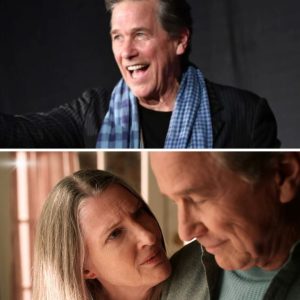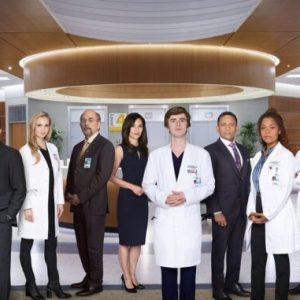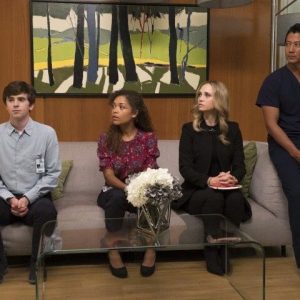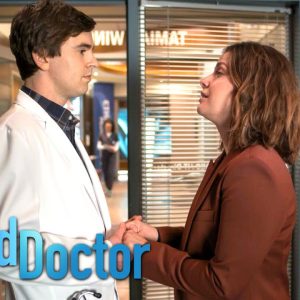Not all great love stories come with candlelit dinners or wedding vows. Some are built quietly, over time, through loyalty, protection, and unconditional presence. In The Good Doctor, amid medical emergencies and emotional chaos, the deepest and most enduring bond is the one between Dr. Shaun Murphy and Dr. Aaron Glassman. Their connection is not romantic—but it is profoundly emotional, utterly human, and, in many ways, the heartbeat of the entire show.
When we first meet Shaun, he’s a brilliant young man with autism and savant syndrome, navigating a world that doesn’t fully understand him. He’s applying for a prestigious surgical residency at San Jose St. Bonaventure Hospital. But what stands out isn’t just his medical genius—it’s the fact that someone has always been in his corner: Dr. Glassman. From day one, Glassman champions Shaun, pushing past institutional resistance and doubters, even threatening to resign to ensure Shaun gets his rightful place on the team.
At first glance, it seems like a simple mentor-protégé relationship. But it quickly becomes clear that this bond runs much deeper. Glassman isn’t just a professional advocate—he’s a father figure. And Shaun, who lost his own brother and was emotionally neglected by his biological parents, begins to treat Glassman as the closest thing he has to family.
Their relationship isn’t always easy. In fact, it’s often messy and complicated—just like any parent-child dynamic. Glassman is protective to a fault, sometimes overstepping boundaries in an attempt to “fix” Shaun’s problems. He worries, meddles, and occasionally tries to control Shaun’s choices out of fear. Shaun, meanwhile, struggles with independence and often rejects help, needing to prove that he can stand on his own. But underneath the friction is a bedrock of care that never wavers.
One of the most emotionally poignant moments in their relationship comes when Glassman is diagnosed with brain cancer. Suddenly, the roles shift. The man who’s always been strong for Shaun becomes the one in need. And Shaun—scared, confused, and unsure how to process his emotions—rises to the occasion in his own unique way. He may not deliver heartfelt speeches, but he’s there. In the waiting room. At the appointments. Asking questions. Offering facts. Showing up.

That’s the beauty of their love: it isn’t expressed in grand emotional gestures, but in presence. In simply being there. In not giving up, no matter how hard it gets.
Shaun doesn’t always know the right thing to say—but he listens. He learns. He adapts. And when Glassman is at his most vulnerable, Shaun is fiercely protective. It’s a turning point that shows how deeply their bond has evolved: the student caring for the teacher, the son watching over the father.
Glassman, in turn, never stops showing up for Shaun—through career challenges, romantic heartbreaks, and medical missteps. When Shaun panics, when he’s pushed to the edge, when the world becomes too loud or too confusing—it’s Glassman he runs to. Not because he has all the answers, but because he’s the one person Shaun knows won’t leave. That kind of emotional safety is rare, and in Shaun’s world, it’s everything.
But what makes this relationship even more compelling is its honesty. They argue. They walk away from each other. Glassman even tells Shaun at one point that he needs to “let go” and trust him to make his own decisions. Shaun accuses Glassman of not believing in him. These aren’t perfect people. But love doesn’t require perfection—it requires commitment. And neither of them ever gives up on the other.
In many episodes, when things go wrong—whether it’s a failed surgery, a romantic fallout, or an emotional breakdown—Shaun finds himself at Glassman’s doorstep. He doesn’t always know how to say what he’s feeling. But he knows where to go. And that’s what counts. Love, at its core, is about knowing you have someone who will open the door, no matter what time it is.
Their bond also evolves beautifully as Shaun matures. Over time, Shaun begins making decisions on his own. He navigates relationships, confronts loss, and even steps into fatherhood. And Glassman learns how to step back—how to be proud from a distance without always interfering. It’s a hard lesson for a man who’s spent years being the protector. But it’s one that speaks to the depth of their connection: love means letting go, but never disappearing.
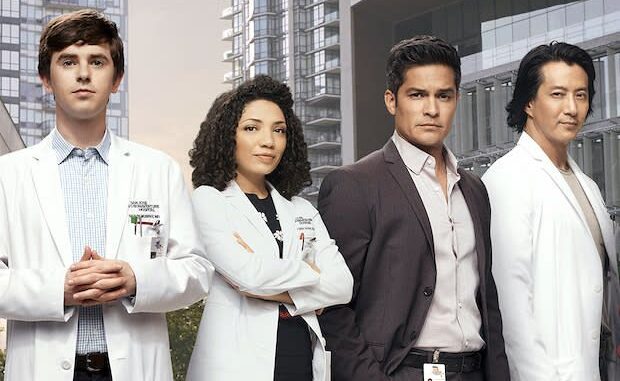
In many ways, their relationship defies traditional family roles. There’s no biological tie. No legal adoption. Just a connection formed through shared experience, trust, and enduring care. It’s a reminder that family isn’t always about blood—it’s about who shows up. Who listens. Who stays.
And in a show filled with emotional highs and lows, it’s the quiet strength of this father-son dynamic that grounds everything. When Shaun gets married, when he holds his child for the first time, or when he faces moments of personal crisis—viewers instinctively look for Glassman’s reaction. Not because he’s the main character, but because he’s the emotional anchor.
There’s something incredibly powerful about watching two people—one older and worn down by life, the other young and still figuring things out—find solace in each other. It’s not dramatic or flashy. It’s real. It’s raw. And it’s why their love, though not romantic, may just be the most important love story the show has to offer.
At the end of the day, The Good Doctor isn’t just a show about medicine. It’s about connection. About finding people who understand you, even when the world doesn’t. And no relationship captures that more fully than Shaun and Glassman.
Their bond is a quiet revolution—a reminder that love can be patient, imperfect, and still utterly life-changing. It’s about being there. Staying. Believing in someone even when they don’t believe in themselves. And in that sense, their love—complicated, unspoken, unwavering—is the kind that lasts a lifetime.
